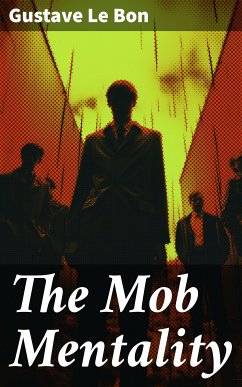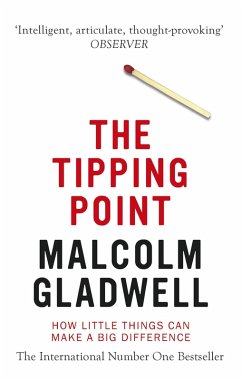
The Behavior of Crowds (eBook, ePUB)
Psychological Study
Versandkostenfrei!
Sofort per Download lieferbar
2,99 €
inkl. MwSt.
Weitere Ausgaben:

PAYBACK Punkte
1 °P sammeln!
In "The Behavior of Crowds," Everett Dean Martin delves into the complex dynamics of collective human behavior, exploring how individuals in groups exhibit patterns that often diverge from their personal cultures and values. Employing a sociological lens, Martin intricately weaves empirical observations with theoretical frameworks, presenting a narrative style that is both accessible and deeply analytical. The book, published during the early 20th century, situates itself within the burgeoning field of social psychology, contributing significantly to our understanding of mob mentality, groupth...
In "The Behavior of Crowds," Everett Dean Martin delves into the complex dynamics of collective human behavior, exploring how individuals in groups exhibit patterns that often diverge from their personal cultures and values. Employing a sociological lens, Martin intricately weaves empirical observations with theoretical frameworks, presenting a narrative style that is both accessible and deeply analytical. The book, published during the early 20th century, situates itself within the burgeoning field of social psychology, contributing significantly to our understanding of mob mentality, groupthink, and the psychological underpinnings of crowd behavior in various societal contexts. Everett Dean Martin was an influential sociologist whose work was shaped by the rapid societal changes of his time, including urbanization and industrialization. His academic background and interest in social dynamics prompted him to investigate the forces that drive collective behavior, inspired by earlier theorists like Gustave Le Bon. Martin's unique perspective, influenced by events such as the tumultuous social movements of his era, highlights his commitment to understanding the intricacies of human interactions. This seminal work is essential for students of sociology, psychology, and even political science, as it provides profound insights into how crowds can mobilize and influence societal change. Martin's synthesis of theory and observation equips readers with a framework to analyze contemporary collective behaviors, making it a critical text for anyone seeking to understand the undercurrents of group dynamics in today's fast-paced world.
Dieser Download kann aus rechtlichen Gründen nur mit Rechnungsadresse in A, B, BG, CY, CZ, D, DK, EW, FIN, F, GR, HR, H, IRL, I, LT, L, LR, M, NL, PL, P, R, S, SLO, SK ausgeliefert werden.













